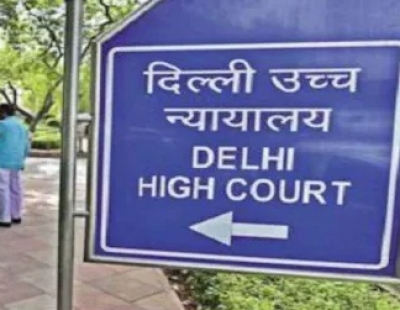New Delhi, Jan 22 (IANS) The Delhi High Court on Monday issued an order for the suspension of the website named ‘Khadi Organic,’ which was falsely presenting itself as the official website for distribution of Ayodhya Ram temple prasad on various social media platforms.
The website, purportedly offering “free prasad” from the ‘Prana Pratishtha’ ceremony at the Ram Temple in Ayodhya, was found to be preying on the public’s religious sentiments.
Justice Sanjeev Narula noted that the website exploited the goodwill of the Khadi and Village Industries Commission (KVIC), a statutory body dedicated to promoting textile development.
The court observed that the website deceived individuals into transferring money under the guise of an association with the KVIC.
The lawsuit alleged that the website misled Indian and foreign customers into believing they could obtain Ayodhya Ram temple prasad for free by filling a form and paying Rs. 51 and $11 respectively.
The court directed the owners of the website to take down any social media pages bearing a mark identical or deceptively similar to KVIC’s registered “KHADI” mark.
Additionally, the owners were restrained from manufacturing, selling, or offering goods or services under the “KHADI ORGANIC” mark or any other mark that could infringe on or pass off as the “KHADI” mark.
Justice Narula noted that the website owners had falsely collected money from the public without providing confirmation receipts or proof of dispatching the promised “prasad.”
The KVIC filed a trademark infringement suit against Ashish Singh, the individual behind “KHADI ORGANIC,” and the company M/s DrillMaps India Private Limited. The court found that the mark “KHADI ORGANIC” wrongly incorporated the “KHADI” trademark, creating a false impression of affiliation with the Shri Ram Janmabhoomi Teerth Kshetra Trust organising the consecration ceremony.
In granting the order, the court stated that the plaintiff has been able to demonstrate a prima facie case in their favour, and in case an ex-parte interim injunction is not granted, the plaintiff will suffer irreparable loss; balance of convenience also lies in favour of the plaintiff and against Defendants No. 1 and 2.

